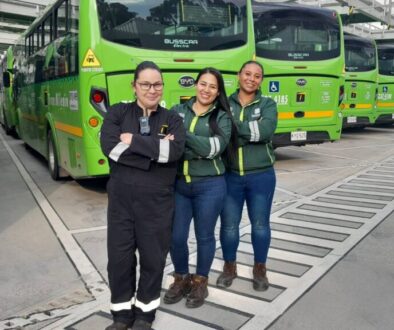International Consortium of Cities in Action (CILA): A collaborative construction 2021-2023
2020 political and representation crisis throughout the region. 2021 a meeting place to discuss experiences. 2022 the construction of a space for exchange. 2023 the strengthening of a community.
Institutional crisis, lack of trust in governments, corruption, fires, discrimination, pandemic. The last few years have been marked by numerous crises that have profoundly affected the Global South – in general – and Latin America in particular.
Faced with 49% support for democracy, 13% for authoritarianism and 27% of the population indifferent to the government regime (Latinobarómetro 2020), organizations in the South realized that they had to take action.
That is why, during November 2021, Asuntos del Sur (Argentina) and Fundación Ciudadanía Inteligente (Chile) teamed up to shape a Latin American virtual event to build bridges of dialogue between local government officials, civil society organizations and academia. During 3 days, experts debated on how to build more open, participatory, gender-sensitive, diverse and sustainable governments.
What started as a small but ambitious event managed to become an ideal: a consortium of organizations from the South for the South. To this end, Citizenship and Affairs worked together with Extituto de Política Abierta (Colombia) and Instituto Pro Comum (Brazil) to materialize a consortium with long-standing organizations and common perspectives. Thus, in March 2022, the four organizations met in Buenos Aires, Argentina in order to consolidate an agenda of democratic governance and public innovation with concrete actions and signed a Collaboration Agreement.
Already with an established agenda, with a focus on building a community, managing knowledge and generating valuable content, the consortium made its first appearance at a regional event: SILO, Connecting Networks of Citizen Labs. On 3 June 2022, invited by Procomún, CILA representatives met with members of the organization SILO – Arte y Latitud Rural, in Minas Gerais and São Paulo, in order to promote a Laboratory for Experimentation and Innovation in Democratic Governance.
Subsequently, and with the commitment of the Global South, CILA representatives were present in Poland at the World Cities Forum organized by UN Habitat. Understanding that cities and local governments play a fundamental role in responding to crises and emergencies, and are key actors in planning for a more sustainable and resilient world, CILA representatives traveled to present the experiences of Latin American organizations, as well as to strengthen the CILA community and networking.
CILA participated in the annual Democracia Viva (Alive Democracy) event where it supported the New Democratic Accord (NAD). This year, the NAD focused on Access to Rights, respect for freedoms and effective participation, as well as Regional Cooperation.
CILA was also present at milestones in our region, such as the collaborative space from where we were able to contribute to and think about the Chilean Constituent Assembly. Thanks to the invitation of Fundación Ciudadanía Inteligente, CILA representatives were in Chile at the event “Reimagine Latin America“, an event that brought together international NGOs to connect the agendas for change in Latin America with the Constituent Process.
With all this background, the consortium prepared during the month of September to develop what would be the most important mission of the year: CILA Connection and the Mission to Bogotá, Colombia. During the first two weeks of October, the consortium met in Bogotá to get in touch and get to know in depth the institutions, laboratories and organizations that are innovating democracy in Colombia.
To this end, CILA visited the Urban Development Institute (IDU), ParticiLab, iBO, GoLab and IDPAC. There, the consortium was able to exchange work experiences, learn about new realities and strengthen networking in the South.
With respect to the IDPAC, the consortium made three territorial visits to learn about experiences of citizen participation in Bogotá. Firstly, CILA visited the “Casa de Experiencias de la Participación del IDPAC“, where they were able to exchange experiences with the Director and learn about the CreAcción space. This space seeks to be a meeting place for diverse expressions and experiences on citizen participation in Bogotá, which encourages networking and the exchange of knowledge, acknowledging the different visions on citizen participation. Afterwards, CILA visited Kennedy where, together with the leader of the community council – Florencia Mecon – they saw how the participatory budget of the municipality works. In addition, they learned how the organization Vive Vibra Verde is working on the recovery of organic resources of more than 400 families in the locality. Finally, the consortium visited the Olarte district where they spoke with the vice-president of the community council, Lucía Cárdenas, and learned about the participatory experience that was carried out to build a volleyball court in the district.
As if that wasn’t enough, during those weeks the team participated in Demo.Reset, a Lab organized by the Open Policy Institute that aimed to develop 5 Deliberative Democracy projects through civil society organizations from the Global South. In this framework we had the opportunity to meet with international networks such as People Powered, local organizations of interest such as Fundación Corona and other funders such as OSF, NED, Wingu, Luminate, among others.
In addition, during the first week in Bogota, CILA representatives were present at the Bogota Innovation Week organized by Demo.Lab of the Bogota City Council. During one day, two representatives of CILA were part of the advisory jury in the presentation of projects of the School of Youth Leadership that the laboratory has.
With all this background, CILA prepared for the most important event of the year, which would mark a before and after in the way CILA works: Conexión.CILA. On Saturday, 74 people representing 31 cities from 19 countries of the Global South came together to identify and prioritize the challenges of democratic governance in the South, in order to think together about how to build more open, democratic and inclusive cities.
Within this framework, progress was made in responding to a survey on innovation strategies in organizations, movements and local governments in order to understand how we are innovating from the South, what are the main advocacy strategies, their obstacles and to learn about cases considered as “successful” in order to continue strengthening collaborative work.
To conclude this mission, CILA representatives were part of the panel of Abre Alcaldías, a Smart Citizenship project that seeks to work with local governments in different Latin American countries. There, the consortium presented on the panel “Public Innovation and citizen participation for the reconstruction of our governance”.
Back in their home countries, CILA members decided to carry out a special action for World Cities Day in October. To this end, the consortium collected testimonies from civil society organizations and governments that are working towards more open, democratic and innovative cities in the South.
And, in turn, in the framework of Urban October, the World Cities Day and CILA Connection, on 21, 22 and 23 October 2022 in Rosario, Argentina, CILA members were part of Ciudades Sin Miedo – Cities Without Fear. There, panels and assemblies were held highlighting the need to generate an agenda of the commons and innovation from the citizenry with a focus on 3 pillars: radicalisation of democracy, feminization of politics and the development of a sustainable model of life both economically and environmentally. Always with people at the core of decision making.
With all this route of activities, CILA met in November with Lab Rio in order to continue strengthening networking and collaboration between organizations in pursuit of open, sustainable and representative democratic governance.
During 2023, CILA seeks to continue strengthening this community in order to generate links and articulations with local governments, academia, civil society organizations and citizens in general to strengthen and generate more open, democratic and inclusive cities.
Stay tuned for new actions and how to participate in the community!




